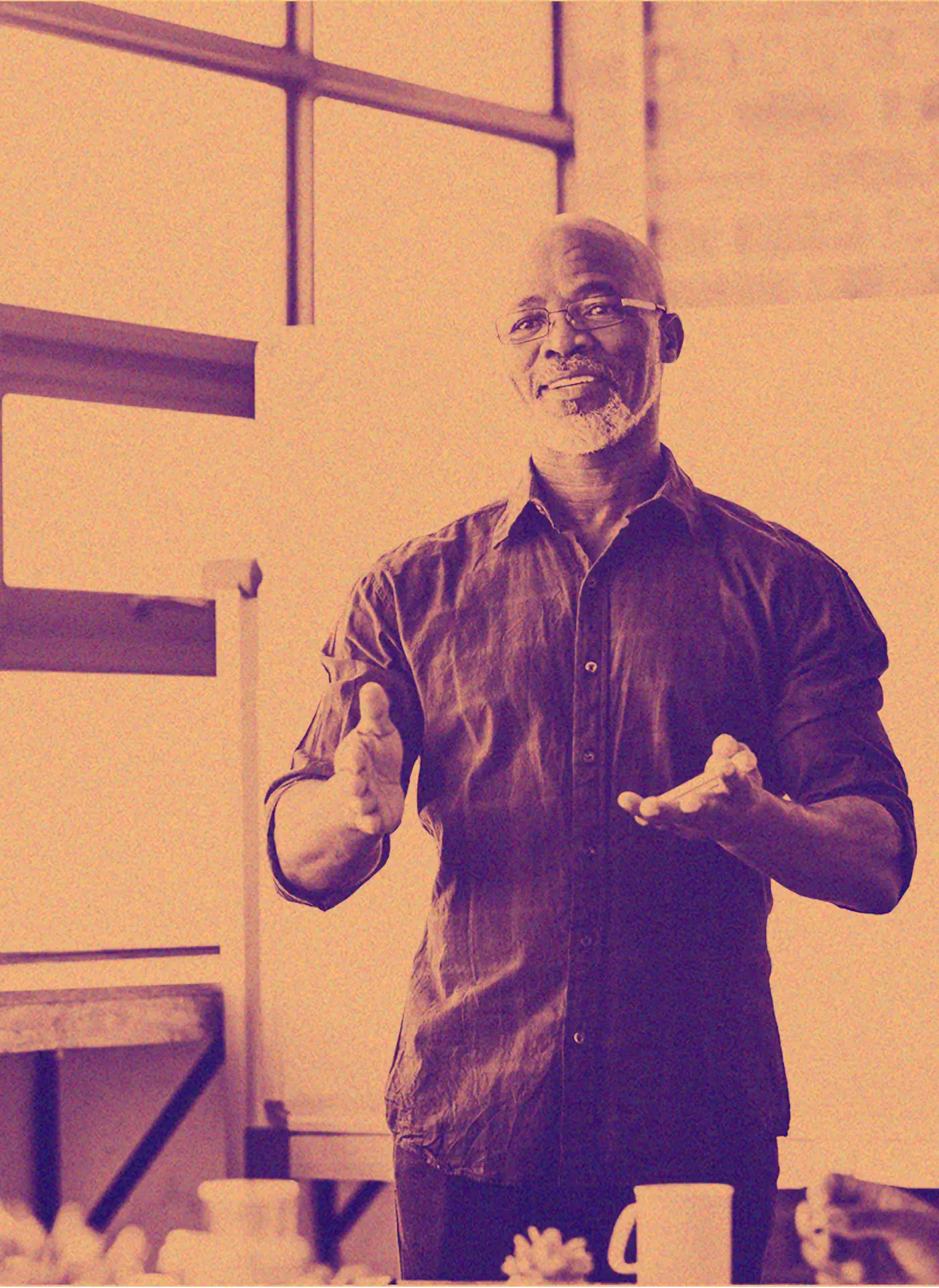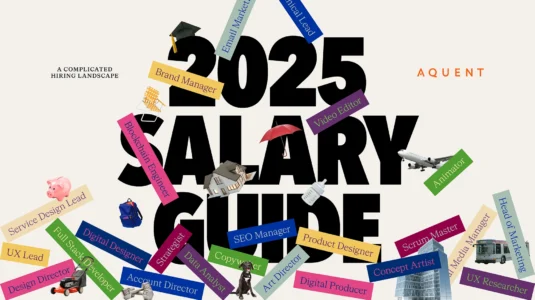

Key Takeaways
- Age-diverse workforces offer companies the chance to leverage strengths across generations, enhancing overall success.
- Despite the benefits, age discrimination remains a challenge, especially in creative industries.
- Older employees bring valuable experience, stability, and strong work ethics, contributing to lower turnover rates and reduced recruitment costs.
- They excel as mentors, providing insights and bridging generational gaps, fostering team cohesion.
- Their diverse perspectives enhance innovation and problem-solving by bringing varied approaches to challenges.
The workforce is now more age-diverse than ever, offering companies a unique opportunity to leverage the strengths of employees from all age groups. A Pew Research survey found nearly a fifth of Americans age 65 and older were employed in 2023, nearly double that of three decades prior. Furthermore, an analysis from Bain & Co. last year predicts that employees 55 and older will constitute over a quarter of the global workforce by 2031.
However, despite these potential benefits, age discrimination continues to be a substantial obstacle, particularly in the creative industry. By recognizing and valuing the contributions of older employees, businesses can not only foster a more inclusive environment but also enhance their overall success. This blog explores the myriad benefits that older employees bring to the table and why businesses should actively embrace an age-diverse workforce.
Debunking the myths of ageism
Ageism often arises from misguided stereotypes, such as the belief that older employees resist change, are set in their ways, or struggle with technology. Nonetheless, many older workers are willing to embrace new technologies and excel at adapting to industry shifts. They bring a robust understanding from witnessing and navigating numerous industry trends, which complements their willingness to learn and grow. This adaptability is a testament to their enduring relevance in the workplace.
In my own experience, I have also adjusted to evolving industries and have found that older employees' capabilities often far exceed these stereotypes. Witnessing their adaptability and eagerness to embrace change has shown me the valuable contributions they make to the workforce.
Unique strengths of older employees
Experience and knowledge:
One of the most significant advantages older employees bring is their wealth of experience and knowledge. Their ability to prioritize and efficiently meet deadlines comes from years of navigating complex work environments. This experience translates into enhanced decision-making and problem-solving capabilities, enabling them to provide insightful contributions to strategic discussions.
Stability and reliability:
Older employees often exemplify a strong work ethic and loyalty, traits that are invaluable in the workplace. Their commitment and reliability foster a stable work atmosphere and positively impact team dynamics. Unlike younger employees who may frequently change jobs in pursuit of career advancement, older workers tend to value stability, resulting in lower turnover rates and reduced costs associated with recruitment and training.
Mentorship and leadership:
The role of older employees as mentors cannot be overstated. They serve as invaluable guides to younger colleagues, sharing wisdom and industry insights that only years of experience can provide. For example, when I joined Aquent in 2016, I benefited exponentially from being mentored by my manager Kelly Collins, SVP, Global Head of Industry, who has been with Aquent for 25 years. This mentorship helped me absorb crucial industry knowledge, underscoring the vital role seasoned professionals play in nurturing talent and fostering organizational growth. Moreover, these experienced employees often bridge generational gaps, promoting cohesion and collaboration within teams.
Diverse perspectives:
Older employees contribute to a team's diversity, offering a rich tapestry of perspectives essential for innovation and effective problem-solving. Their life and career experiences enable them to approach challenges from varied angles, incorporating best practices they have learned from other employers and enriching the team's collective approach. This diversity not only fosters creativity but also allows companies to connect with a broader demographic, ultimately enhancing their market reach and customer engagement.
Current trends and statistics
Despite the benefits, biases persist in hiring practices, with companies often overlooking the potential of older workers in favor of younger workers. This trend disregards the growing evidence that age diversity fosters innovation and stability. Statistics show an aging workforce, yet many businesses remain slow to adapt, missing the opportunity to leverage the experience and insights older employees offer. Age discrimination remains a frequent concern, with many older professionals facing rejection due to unfounded assumptions about their capabilities or simply being “overqualified” or “too seasoned,” as I hear quite often from employers.
The business case for hiring older employees
The financial and operational benefits of employing older workers are compelling. Their extensive experience reduces the need for intensive training, leading to increased productivity and efficiency. Companies that embrace age diversity often report improved employee morale and retention rates, contributing to a positive work culture.
I also want to point out that many employers miss out on some amazing talent because they take a look at an older worker's resume and decide that they are not a fit based solely on the number of years of experience or the fancy titles or leadership roles they have held in the past. I wish employers would not be so quick to judge older workers and give these professionals a chance. I interview hundreds of incredible candidates every year and I hear over and over again from older workers that they are getting automatically rejected without any consideration or an interview. I am sad to say this, but I see a lot of employers choosing junior-level talent over accomplished and experienced talent, even though their requested pay rate is the same. Many times, the priorities for older candidates change over the years—they are done “trying to climb the corporate ladder” and just want to be in a job they love and feel passionate about.
Many years ago, I was recruiting for a Copywriter for one of my favorite long-term enterprise clients. I submitted several candidates, including one person who had a very impressive background, 30+ years of work experience, including Creative Director and even VP roles at top agencies and organizations. When I interviewed him, he shared with me that his passion is writing and that he no longer needed the high salary or leadership titles he has held in the past. Not only did the hiring manager interview this candidate, he made him an offer almost immediately. I give that manager a huge amount of credit, as I feel many companies would overlook him because they deemed him “overqualified.” He did a phenomenal job in his Copywriter role. He took it upon himself to learn about the complex organization, their competitors, the industry trends, quickly becoming the subject matter expert for the company. They loved him so much that they even created a new role for him, and he stayed on at the company full-time for many years.
It was funny because he kept telling me, “Vicki, I'm gonna be retiring soon,” but the hiring manager convinced him to stay for several more years. Finally, he said, “Alright, I've got to retire,” and he gave them a year's notice. When he did finally retire, it was a very sad day for the company. We have placed other copywriters on his team since then who are also fantastic, but they missed him so much. Not long after he officially retired, they asked him to come back to work as a consultant to help with strategy and other tasks. His wisdom, knowledge, and passion for learning were invaluable. He returned and continues to work there on a very part-time, freelance basis, despite being past retirement age. This demonstrates the impact he had on the team.
Conclusion
I have many stories like this, but honestly, I wish I had more. It really drives home the point that when companies take a chance on older workers, they often discover incredible assets. They bring so much to the table—experience, dedication, a unique perspective—and it's time more companies recognized that. We need to move past the idea that age is a limitation and start seeing the potential. Imagine a workplace where everyone, regardless of age, has a chance to contribute their best, to learn, and to grow. That's the kind of world I want to live in—and the one we all deserve.
Related

Great brand collaborations are the best to strengthen identity.
Design & Experience, Insights & Trends, Marketing & Creative, Beauty and Fashion

Consumer demand and policy are driving EV market growth.
Development & Technology, Insights & Trends, Automotive

Are you missing opportunities to improve health screenings?
Design & Experience, Marketing & Creative, Health



